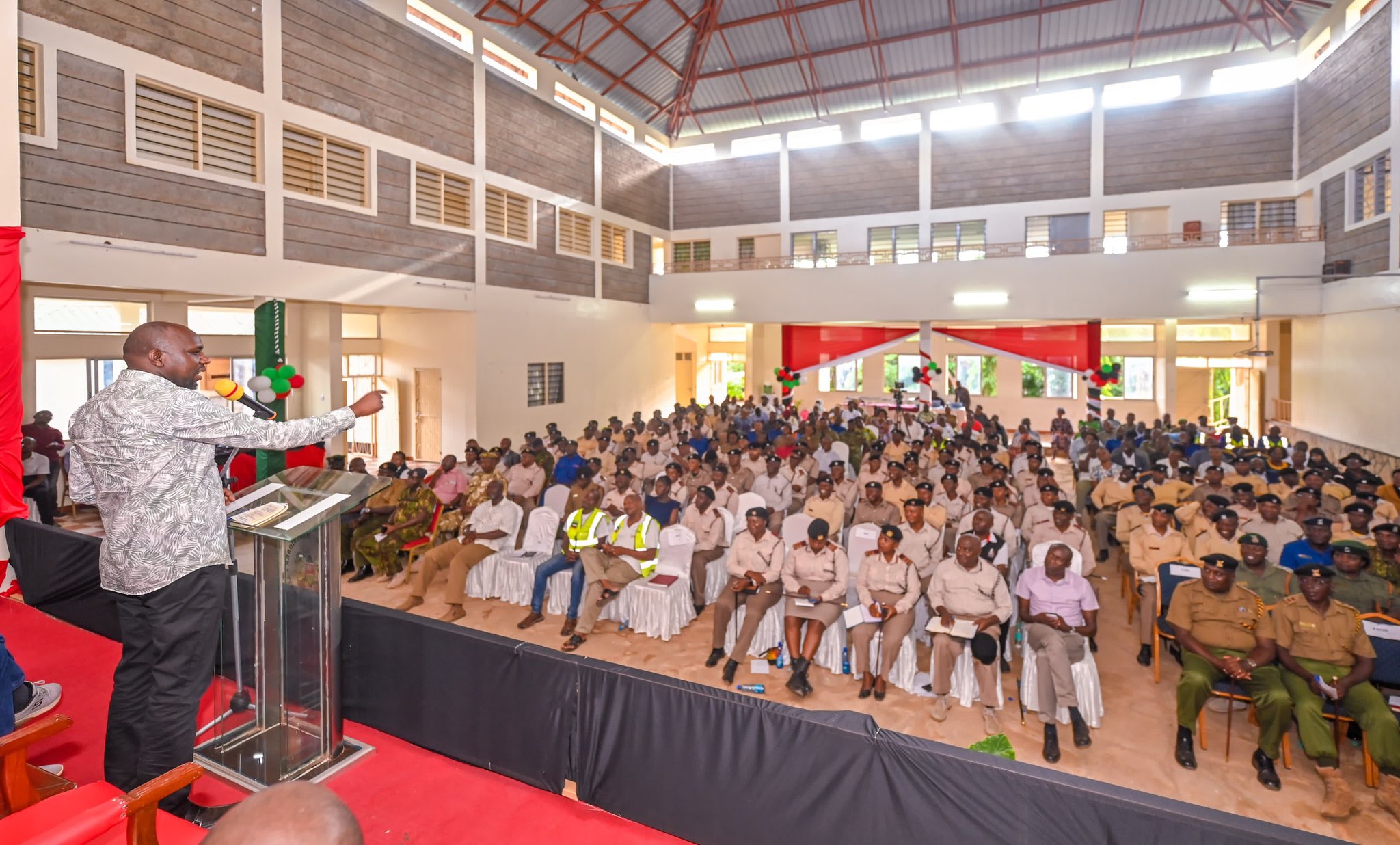Gov’t seeks public views on plan to recognise, pay village elders

For years, village elders have served as pillars of their communities—resolving disputes, promoting peace, collecting data and reporting security threats, yet their efforts have remained largely unrecognised by law and unsupported by the government.
Kenyans have been invited to give their views on a new policy that seeks to officially recognise village elders, granting them legal status, clear responsibilities, and financial compensation.
The nationwide public participation forums, scheduled for Tuesday, April 15, 2025, will allow citizens to weigh in on what could be a landmark shift in grassroots leadership and governance.
More To Read
- Murkomen warns politicians over hired goons, rising SGBV cases
- Murkomen warns perpetrators of by-election violence will face action
- Murkomen warns politicians against deploying supporters to by-election tallying centres
- Murkomen defends recall of Natembeya's security detail ahead of Thursday's by-elections
- Families demand resettlement as 31 landslide victims are laid to rest in Chesongoch
- Over 700 illegal firearms surrendered as Murkomen says State will burn guns once tally hits 1,000
For years, village elders have served as pillars of their communities—resolving disputes, promoting peace, collecting data and reporting security threats, yet their efforts have remained largely unrecognised by law and unsupported by the government.
The Draft National Government Village Administration Policy now aims to change that by integrating elders into the formal administrative structure under the national government.
The proposed policy outlines a new framework that would see elders formally gazetted, trained and equipped with the tools needed to carry out their duties effectively. It introduces eligibility criteria, assigns them specific responsibilities and establishes mechanisms for oversight and logistical support.
Interior Cabinet Secretary Kipchumba Murkomen described the policy as a “transformative milestone in Kenya’s journey towards devolved governance,” noting its potential to bring the government closer to the people.
“This will anchor service delivery at the grassroots while promoting inclusivity, unity, and sustainable growth. For a country whose constitution mandates access to services, the formal recognition of the village as the lowest unit of administration is not just constitutional, it is moral,” Murkomen said.
Internal Security and National Administration Principal Secretary Raymond Omollo echoed these sentiments, calling village elders “the invisible spine of Kenya’s internal security and social cohesion.”
“Village elders wield huge influence in community representation and decision-making. They provide the fabric that holds society together,” Omollo said.
Although village elders have long been instrumental in governance at the grassroots level, their role has remained unofficial, often overshadowed by gazetted national government administrative officers. The new policy seeks to address this gap by creating a structured and well-resourced system of village administration that complements existing governance frameworks.
If the policy is adopted following public feedback, it will mark a significant departure from decades of informal reliance on community elders.
It promises to legitimise their work, compensate their efforts, and ensure they are better supported in safeguarding peace and fostering development within their communities.
Public participation will be conducted in ten cluster venues across the country. In Nairobi, the forum will take place at Pangani Girls High School and will bring together residents from Nairobi, Kiambu, and Kajiado counties.
In the North Rift, Uasin Gishu’s Multi-Purpose Hall at the County Commissioner’s Office in Eldoret will host participants from Nandi, Elgeyo Marakwet, Trans Nzoia, Turkana, and Baringo.
Residents of Bomet, Narok, and Kericho will converge at the Rift Valley Plenary Hall at the Regional Commissioner’s Office in Nakuru, while those from Homa Bay, Migori, Siaya, Kisii, and Nyamira will share their views at Mama Grace Anyango Hall in Kisumu. In the western region, Bungoma, Busia, and Vihiga residents will attend the forum at Magharibi Hall in Kakamega.
In central Kenya, the Nyeri Cultural Centre will serve residents from Murang’a, Nyandarua, Laikipia, Kirinyaga, and Samburu. Those from Tharaka Nithi, Embu, Isiolo and Marsabit will meet at the Meru Technical Centre.
In northeastern Kenya, the Government Guest House in Garissa will cater to participants from Garissa, Wajir and Mandera.
Residents from Kitui and Makueni counties will give their input at Le Technish Kilimambogo in Machakos, while at the Coast, the forum will be held at Tononoka Social Hall in Mombasa, drawing attendees from Mombasa, Kilifi, Kwale, Lamu, Taita Taveta and Tana River.
Top Stories Today











































